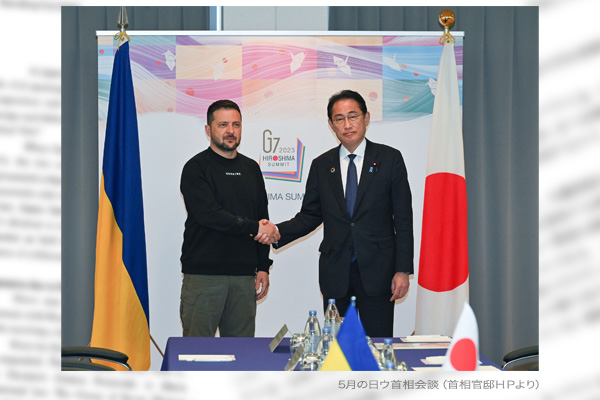Japan’s self-imposed restrictions, such as the former Three Principles on Arms Exports and their revised version known as Three Principles on Transfer of Defense Equipment and Technology, have constrained its national security policy over a long term. In order to improve this situation, the National Security Strategy approved by the cabinet in December last year recognized that defense equipment transfer overseas would be an important policy tool for creating a desirable security environment for Japan. At the same time, it said explicitly that the Three Principles on Transfer of Defense Equipment and Technology and other systems are to be considered for revisions.
In accordance with this established policy, the ruling Liberal Democratic Party and its junior coalition partner, the Komeito party, began discussions in May to revise the Three Principles on Transfer of Defense Equipment and Technology. However, no conclusion has been reached yet. The discussions apparently focus on whether to allow the export of lethal equipment for the first time. While there is a positive opinion within the LDP that a certain conclusion should be reached promptly, cautious views remain strong within the Komeito. We can safely say that behind such caution lies the remnants of the one-country pacifism that has prevailed in Japan for a long time after World War II.
Curse of one-country pacifism
On the occasion of the Gulf War in 1991, Japan had a bitter experience of not being appreciated by the rest of the world as Japan provided only money but not the Self-Defense Forces, relegating unpleasant tasks to other countries. Now that Ukraine is at the forefront of the battle between democracy and autocracy and demands more weapons from the international community, Japan’s policy of limiting its support to the provision of non-lethal equipment underscores its stance that it does not want to take on a dirty job.
Japan’s pacifism after the war has been an extremely passive, negative, and fanciful belief that no disaster would fall on Japan if Japan does nothing on its own, as indicated by its interpretation of the Constitution and the relevant advocacy of unarmed neutrality.
The first National Security Strategy approved by the second Abe cabinet established the basic philosophy of “Proactive Contribution to Peace,” vowing to contribute more actively than ever to ensuring international peace, stability, and prosperity. The new National Security Strategy adopted last year inherited the philosophy, noting that Japan would maintain the policy of Proactive Contribution to Peace based on the principle of international cooperation.
Charity is an investment
A Japan that cannot provide lethal weapons due to its one-country pacifism cannot occupy an honored place in the international society. Japan should break away from one-country pacifism, embody the policy of Proactive Contribution to Peace both in name and reality, and support Ukraine to the maximum extent possible as Japan’s own stance.
Today's Ukraine will be tomorrow's Taiwan and Japan. If Ukraine, which is fighting as the spearhead of democracy, loses the war against Russia, the authoritarian power China will gain momentum. From the perspective of Japan’s national security, we must do everything we can to ensure that Ukraine wins.
Charity is an investment for the future. I hope that Japan will actively promote the transfer of defense equipment overseas.
Kiyofumi Iwata is a Planning Committee member of the Japan Institute for National Fundamentals. Formerly, he served as Chief of Staff of the Japan Ground Self-Defense Force.


